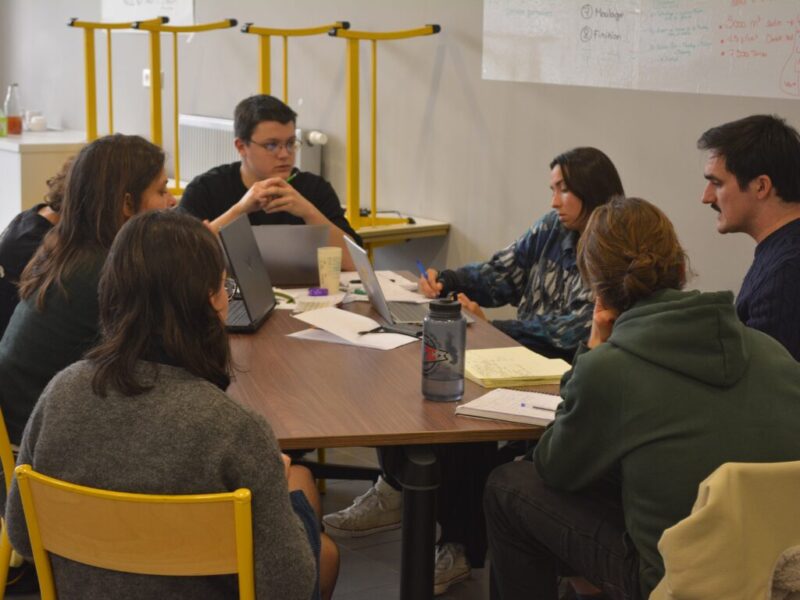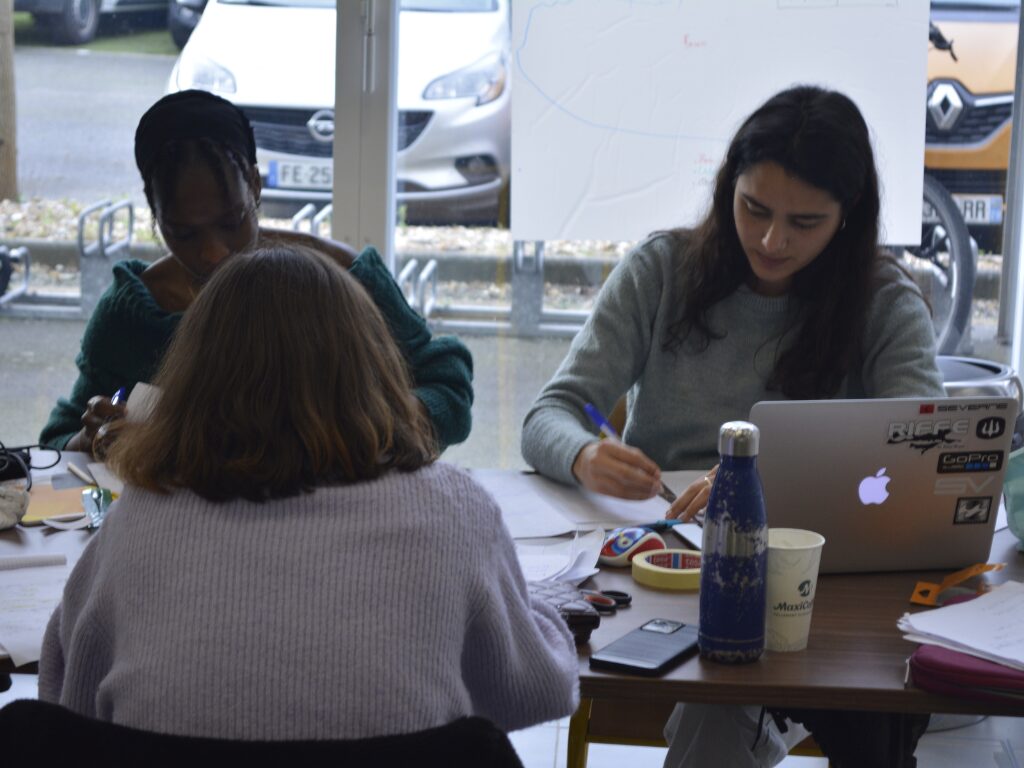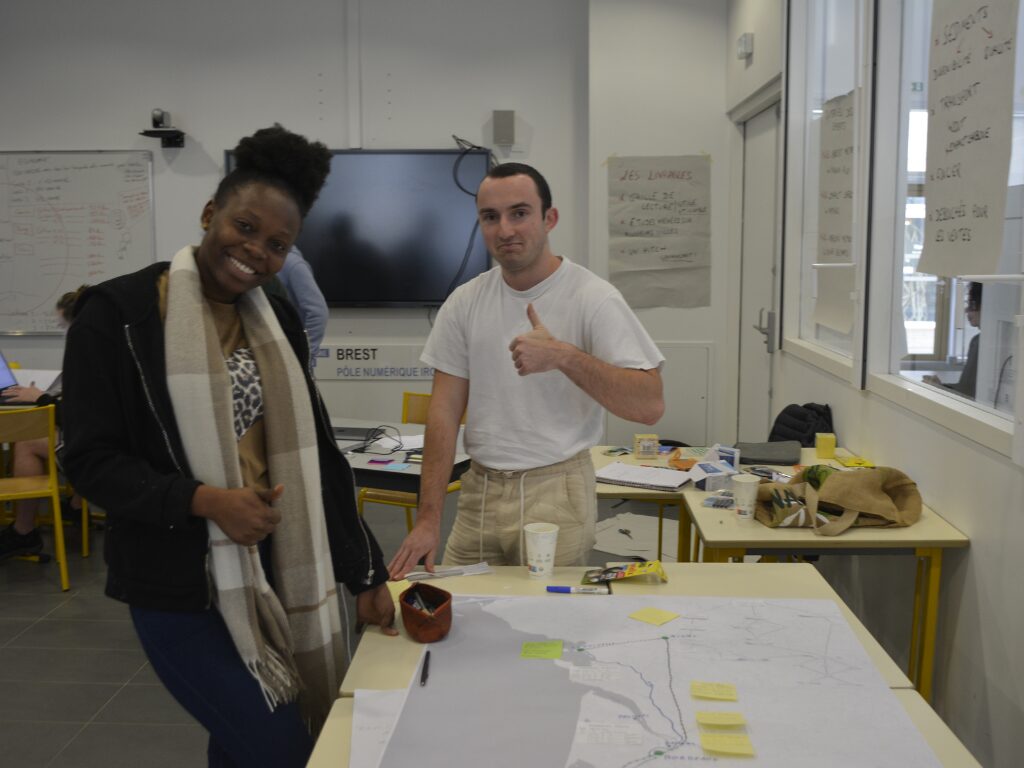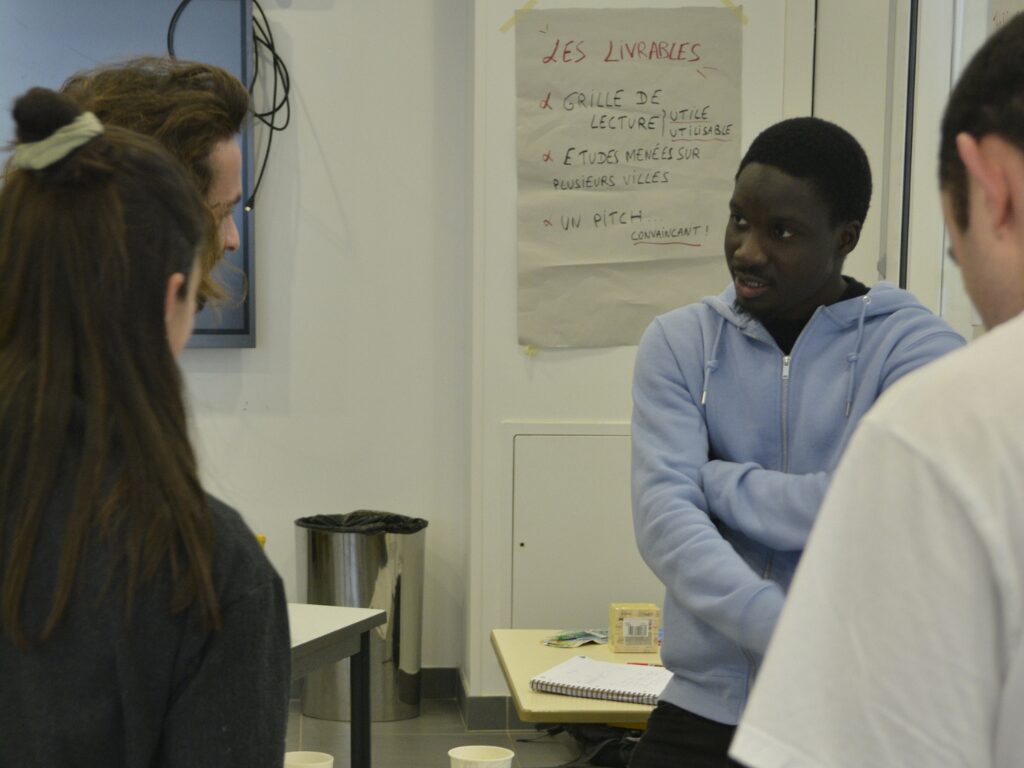SEDIMENT’EXPRESS PIM: Helping the Company Gwilen Solve a Real-World Challenge while Respecting Ecological and Economic Constraints

From 6 to 10 January 2025, the SEDIMENT’EXPRESS PIM immersed twelve master’s students in a hands-on entrepreneurial challenge. Supervised by Joséphine Corre (ISblue HUB / UBO) and Romain Maurer (Ya+K), participants collaborated with the Brest-based company Gwilen, which transforms marine sediments from dredging into eco-friendly construction materials.
The goal of the workshop was clear: help Gwilen tackle a real operational challenge while balancing ecological and economic constraints. The company’s mission (to turn marine waste into valuable resources) requires constant optimisation, particularly in logistics, storage, and transport of sediments.
Students began by visiting the company’s facilities and meeting the team to gain a full understanding of its production process. They then attended presentations from three experts who helped guide their research:
- Manon Fily, Economic Development Officer, Brest Métropole
- Claire Béchard, Maritime and Port Project Manager, Morlaix Communauté
- Mathieu Regnauld, ISblue, who supported the carbon footprint analysis of different transport options



Divided into four teams, the students conducted four case studies focused on different coastal areas (the Mediterranean, the Garonne estuary, the Paris Basin, and Brittany) exploring how to move sediments efficiently from the sea to the factory and then to end users. They examined key questions such as:
- What are the most suitable dredging sites for sediment collection?
- How can storage be optimised to reduce environmental impact and costs?
- Which transport methods best balance economic efficiency and sustainability?
- Where is available land for potential site installation?
- What local distribution options exist around these zones?
The workshop followed a Service Learning approach, enabling students to work on a real business issue with tangible impact. This setting offered valuable insight into the challenges faced by a growing company and taught participants to design practical solutions tailored to real-world needs.
The PIM highlighted the students’ creativity and analytical skills, as well as their ability to communicate and collaborate effectively. By the end of the week, teams presented their findings and recommendations to Gwilen and later showcased their work at the PIM Forum.
Watch the students’ interview from the PIM Forum:
Supervisors:
- Joséphine Corre (ISblue HUB / UBO)
- Romain Maurer (Ya+K)
 Attention, vous utilisez un navigateur peu sûr !
Attention, vous utilisez un navigateur peu sûr !